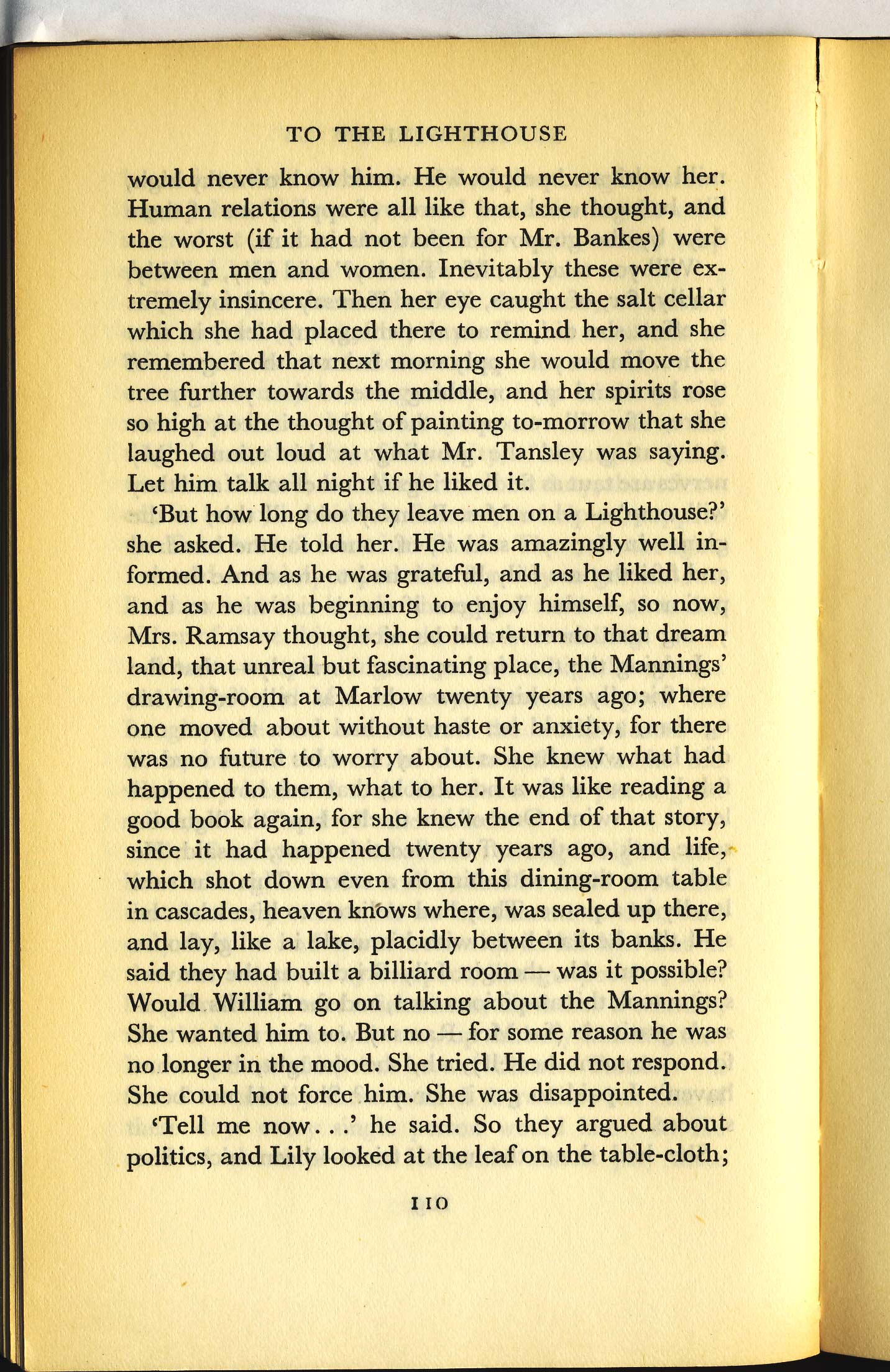
TO THE LIGHTHOUSEwould never know him. He would never know her.Human relations were all like that, she thought, andthe worst (if it had not been for Mr. Bankes) werebetween men and women. Inevitably these were ex-tremely insincere. Then her eye caught the salt cellarwhich she had placed there to remind her, and sheremembered that next morning she would move thetree further towards the middle, and her spirits roseso high at the thought of painting to-morrow that shelaughed out loud at what Mr. Tansley was saying.Let him talk all night if he liked it.ŌĆśBut how long do they leave men on a Lighthouse?'she asked. He told her. He was amazingly well in-formed. And as he was grateful, and as he liked her,and as he was beginning to enjoy himself, so now,Mrs. Ramsay thought, she could return to that dreamland, that unreal but fascinating place, the ManningsŌĆÖdrawing-room at Marlow twenty years ago; whereone moved about without haste or anxiety, for therewas no future to worry about. She knew what hadhappened to them, what to her. It was like reading agood book again, for she knew the end of that story,since it had happened twenty years ago, and life,which shot down even from this dining-room tablein cascades, heaven knows where, was sealed up there,and lay, like a lake, placidly between its banks. Hesaid they had built a billiard room ŌĆö was it possible?Would William go on talking about the Mannings?She wanted him to. But no ŌĆö for some reason he wasno longer in the mood. She tried. He did not respond.She could not force him. She was disappointed.ŌĆśTell me now. . .ŌĆÖ he said. So they argued aboutpolitics, and Lily looked at the leaf on the table-cloth;110









